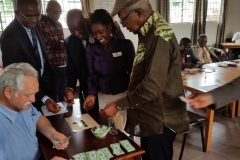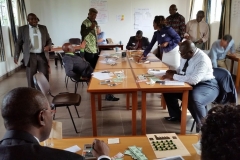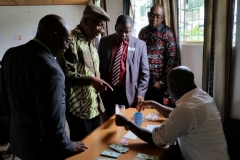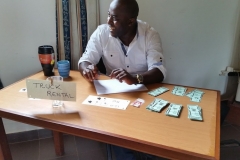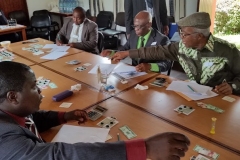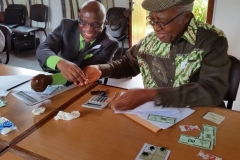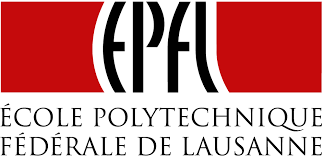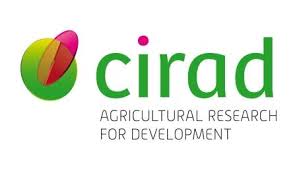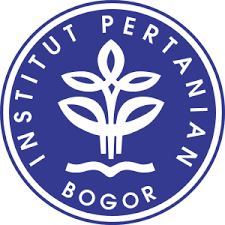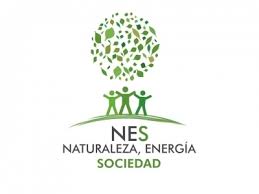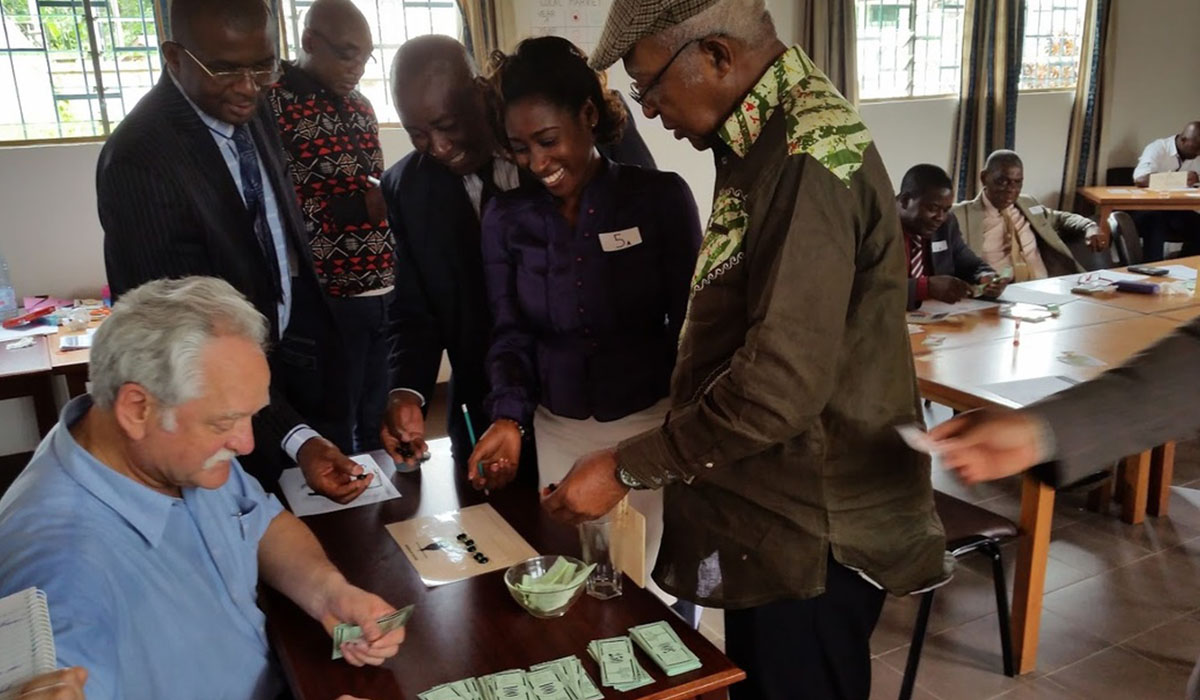
Cameroon: Key players playing to better manage palm oil
It’s not often that policy makers at the highest level are able to experience first-hand the complexity of the systems they manage. Those managing the palm oil supply chain in Cameroon are no different. Decisions are taken at all levels of the supply chain, with far fetching, often unforeseen, sometimes unwanted, consequences in terms of sustainability, efficiency and environmental impact.
To overcome this challenge, we developed, as part of the OPAL (Oil Palm Adaptive Landscapes) project, a role playing game, CoPalCam, with stakeholders from the oil palm belt of Cameroon. CoPalCam can be used by small growers, cooperatives, plantation companies, downstream industries, and policy makers to explore the resilience of the supply chain and the complex and non-linear ways in which their decisions interact. In a first step, the model was calibrated and validated during playing sessions with 28 oil palm smallholders, 3 extension officers and 5 representatives of two of the five companies processing fresh fruit bunches (FFB) into crude palm oil (CPO) in 3 regions of Cameroon. These game sessions refined our collective understanding of the supply chain. The discussions generated feedback that could be integrated into the model, or act as ”take-home” messages for the participants, be they academics or stakeholders.
The second step was to use this game to organize a discussion with 8 members of the Cameroonian Palm Oil Supply Chain Regulation Committee. This institution involves representatives of the ministries of Finance, Trade and Agriculture, refiners and soap-industries, agro-industries and the main smallholders’ association (UNEXPALM) and is an ideal platform to explore alternative solutions to the issues faced by the supply chain. That workshop took place on April 4th, in the Conference Centre of the Monastery of Mount Febe, in Yaoundé.
The outcome of this session was (i) a better understanding by the Committee members of the individual strategies of producers and transformers and their impacts, (ii) a request to repeat the exercise to explore potential solutions to the problem of insufficient production in Cameroon, and (iii) the suggestion to use the game as part of the awareness creation program the Government is running together with WWF Cameroon in order to foster the creation of cooperatives.
Our model, our game, and the scenarios that we can explore with it gave the policy makers the opportunity to embrace the complexity of the supply chain, and the interactions between the economic, social and environmental drivers of change. They could do so in a non-threatening, low stakes environment. By creating alternative forms of interaction, the model enabled them to discuss openly sensitive topics. It also gave them the opportunity to reflect on their own role and capacity of action: where are the real levers of change in the supply chain?
And based on the smiles in the pictures after a daylong workshop, it was productive and fun!
Location
Oil Palm Adaptive Landscapes (OPAL)
c/o Prof. Jaboury Ghazoul
Chair of Ecosystem Management
Department of Environmental System Sciences
ETH Zurich
Universitätstrasse 16
8092 Zürich
Switzerland

